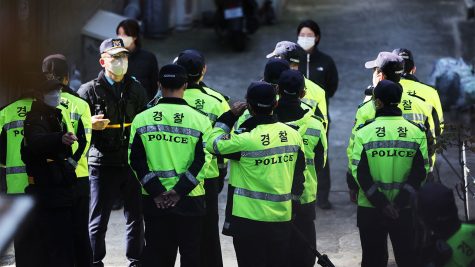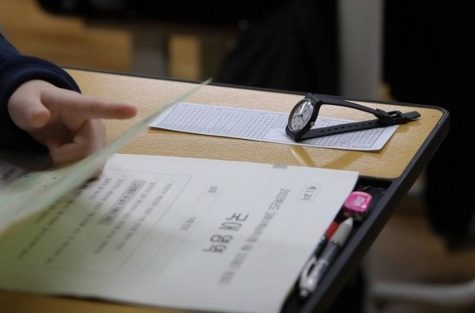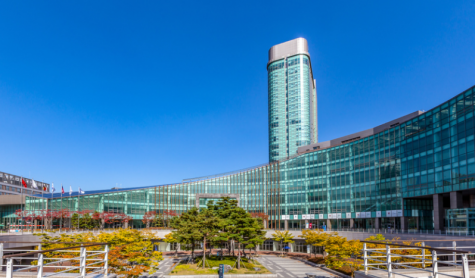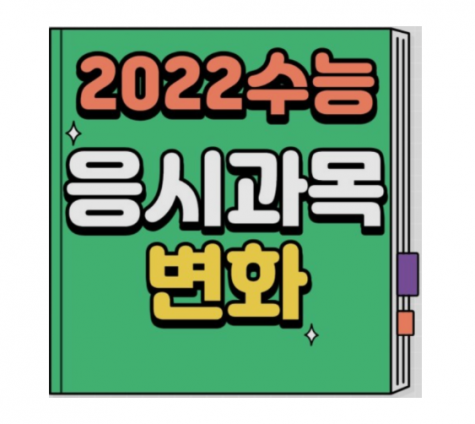How African Americans are Denied Voting Rights and What it Means for the 2020 Presidential Election
This November, Americans across the country will choose between Republican Donald Trump or Democrat Joe Biden to lead the most powerful nation on earth. A voter files her ballot in Cambridge, Ohio. (Photo Courtesy of VOX)
October 7, 2020
In what has been dubbed the ‘mother of all elections’, this November, Americans across the country will choose between Republican Donald Trump or Democrat Joe Biden to lead the most powerful nation on earth. Voters will flock to mailing centers and voting booths to take part in one of the most influential elections in modern American history. Unfortunately, millions of African-Americans will be denied the right to vote, their voice unheard in one of the most controversial elections of the 21st century.
HISTORY OF AFRICAN AMERICANS IN POLITICS
The implementation of the Fifteenth Amendment extended the right to vote to all men; including African American men, in 1870. Women, black and white, were later given the right to vote approximately 50 years later in 1920. However, being ‘given’ the right to vote did not ensure that the African American population was voting. Blockades at every part of the voting process kept many from being able to cast their ballots. From literacy tests to paper bag tests, anyone determined uneducated, poor, or ‘too-dark’, was excluded from the voting process.
The Civil Rights Movement, ending in 1968, seemed to be an abrupt end to the US’ racist and segregated past; but the problems of the Civil Rights Movement did not end with Martin Luther King Jr. or Malcolm X, and they have continued well into the 21st century.
Now in 2020, with the rise of the Black Lives Matter movement against police brutality, much of the country has opened its eyes to the systematic racism that still exists in the US.
EDUCATION, POVERTY, THE JUSTICE SYSTEM, AND VOTING RIGHTS
The passing of the thirteenth amendment in 1865 freed the slaves; however, it did not give previous slaves housing, education, work, or the tools to integrate themselves into society. Throughout history, African American communities found themselves in low-income neighborhoods, which is a breeding ground for this circle of systematic racism to thrive in.
Taxes fund schools, meaning that schools in very low-income areas, have less resources available for their students. Less resources lead to a lower quality of education and an adverse relationship with education for many students; leading to lower rates of graduation and exploration of higher education.
The educational problems that come from living in a low-income area keep many from getting well-paying jobs, ensuring that future generations from the same families stay in those low-income areas, attend the same under-funded schools, and continue the cycle of poverty.
According to a study by the US Department of Housing and Urban Development in Summer 2016, “Neighborhoods with more concentrated disadvantage tend to experience higher levels of violent crime. Numerous studies, for instance, show that neighborhoods with high poverty rates tend to have higher rates of violent crime.” Furthermore, “Poverty, segregation, and inequality are related to neighborhoods’ access to resources and ability to solve problems, including problems that foster crime.”
On top of already being more predisposed to living in low-income areas, because of the cycle of racism that has taken hold of much of the US; low-income neighborhoods housing minorities, whether African American or other, have much more concentrated disadvantages, leading to higher levels of violent crimes. High levels of violent crimes lead to higher policing in said areas, which can directly be observed by higher numbers of arrests of minorities in poverty-stricken areas.
Not only are African American’s more likely to be arrested of violent crimes, they are more likely to be wrongfully convicted for these crimes. According to a 2016 study by Michigan State University, “Innocent black people are about 12 times more likely to be convicted of drug crimes than innocent white people,” and “African-American prisoners who were convicted of murder are about 50 percent more likely to be innocent than other convicted murderers and spend longer in prison before exoneration.”
In terms of exoneration, “A black prisoner serving time for sexual assault is three-and-a-half times more likely to be innocent than white person convicted of sexual assault. On average, innocent African-Americans convicted of sexual assault spend almost four-and-a-half years longer in prison before exoneration than innocent whites.”
On top of that, being exonerated does not mean that criminal records are cleared, you are still required to cite and list that you have been convicted on every job application, university application, or important documents unless you have your state expunge the case from your record. According to Bryant Chaves Law Office LLC, “Some states have difficult requirements for getting your record cleared. In Alaska, for example, you actually have to prove your innocence in order to get a record sealed. This is a bigger hurdle than proving the state did not have sufficient evidence to convict.”
AFRICAN AMERICANS AND THE NOVEMBER PRESIDENTIAL ELECTION
The 2020 Presidential Election fits into place in a very simple way. Those convicted of a felony, are not allowed to vote. Whether convicted, released, or exonerated, whether serving time or reintegrated into society, felons cannot vote- and that is a lifelong charge.
Meaning that African Americans who have been convicted of a felony and released back into society, will not be casting their ballots this November. Neither will minorities who were wrongfully convicted of a crime and later exonerated.
According to Prison Policy’s 2020 Mass Incarceration study, 2.3 million US citizens are incarcerated in prison or jail today. 4.9 million Americans have been formerly incarcerated in state or federal prison. 19 million Americans have been convicted of a felony (at any point in time), and 77 million have a criminal record.
This means that there are over 19 million Americans who will not be voting this November, a disproportionate amount of them racial minorities either African American, Latino, or other.
WHAT DOES THIS MEAN FOR THE 2020 ELECTION?
The upcoming election has been a very controversial one, mainly due to the President Trump’s radical views on race, race relations, and treatment of minorities in and outside of the political sphere. In order to get a true understanding of who minorities in the United States want to lead their country, there has to be an of overhaul of all areas of daily life.
A U.S. military soldier stationed in South Korea, who prefers to remain anonymous, responded as such when asked what missing the African American vote would mean for the upcoming election, “It would be chaos. Many African American communities feel that it [voting] is the only way out. These communities count on votes to create a difference in their lives. By stripping that population of their voice, would only fuel racial tension and discomfort.
Currently, the United States is missing out on the votes of millions of American people; this election will be no different. Without reconsideration of the prison, educational, tax, and state systems, there will always be a large portion of the country being kept from expressing their vote.
Though not much can change before the 2020 Presidential Election, it is more than necessary for the US government to try to better understand how these missing votes are affecting the people, society, and the country as a whole.
For those hoping to better understand the issues of race and voter rights, visit www.americanprogess.org





![The convenience store chain, GS25, collaborated with the beer company Heineken. This is a pop-up store operated at GS25s Hapjeong Premium Store in Seoul and Ingu Beach Store in Yangyang, Gangwon-do in collaboration with Heineken. [Image courtesy of GS25]](https://songdochronicle.com/wp-content/uploads/2022/10/Korean-convenience-stores-targeting-the-MZ-generations-Chaeyoon-Jung-1-475x301.jpg)




